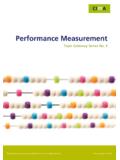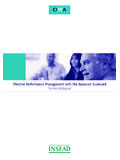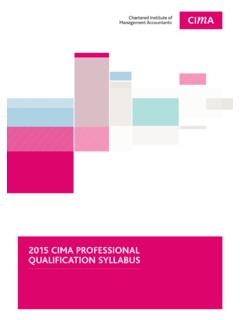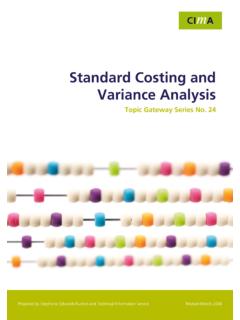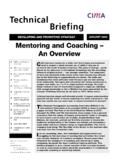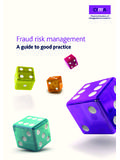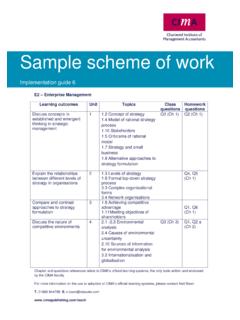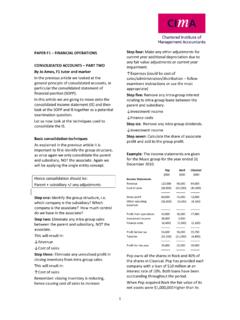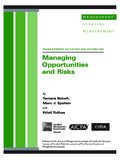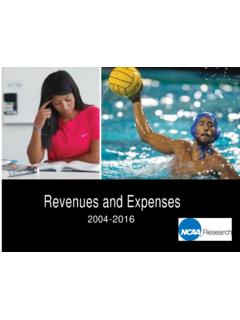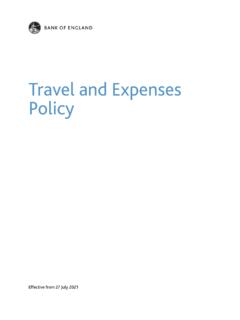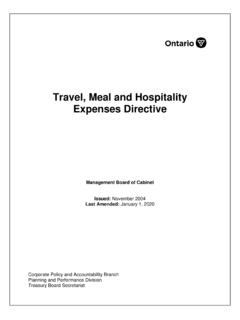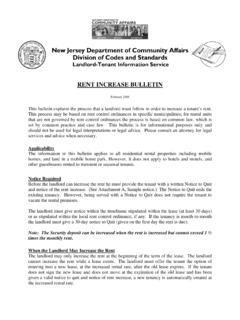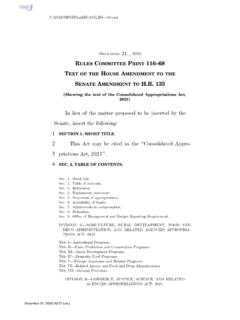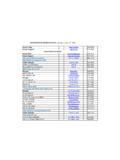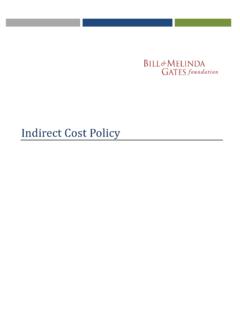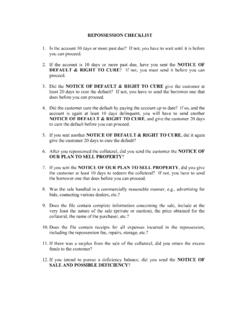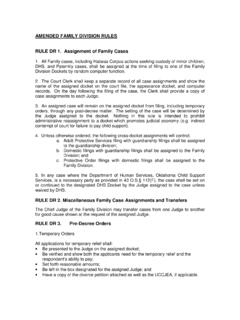Transcription of CIMA CODE OF ETHICS
1 cima code OF ETHICS For professional accountantsOctober 20101 cima code OF ETHICS FOR PROFESSIONAL ACCOUNTANTSCIMA code OF ETHICS FOR PROFESSIONAL ACCOUNTANTSCIMA PREFACEAs Chartered Management Accountants cima members (and registered students) throughout the world have a duty to observe the highest standards of conduct and integrity, and to uphold the good standing and reputation of the profession. They must also refrain from any conduct which might discredit the profession. Members and registered students must have regard to these guidelines irrespective of their field of activity, of their contract of employment or of any other professional memberships they may hold. cima upholds the aims and principles of equal opportunities and fundamental human rights worldwide, including the handling of personal information.
2 The Institute promotes the highest ethical and business standards, and encourages its members to be good and responsible professionals. Good ethical behaviour may be above that required by the law. In a highly competitive, complex business world, it is essential that cima members sustain their integrity and remember the trust and confidence which is placed on them by whoever relies on their objectivity and professionalism. Members must avoid actions or situations which are inconsistent with their professional obligations. They should also be guided not merely by the terms but by the spirit of this code . cima members should conduct themselves with courtesy and consideration towards all with whom they have professional dealings and should not behave in a manner which could be considered offensive or ensure that cima members protect the good standing and reputation of the profession, members must report the fact to the Institute if they are convicted or disqualified from acting as an officer of a company or if they are subject to any sanction resulting from disciplinary action taken by any other body or has adopted the following code of ETHICS .
3 This code is based on the IFAC* code of ETHICS , that was developed with the help of input from cima and the global accountancy profession. If a member cannot resolve an ethical issue by following this code by consulting the ETHICS information on cima s website or by seeking guidance from cima s ETHICS helpline, he or she should seek legal advice as to both his or her legal rights and any obligations he or she may have. The cima Charter, Byelaws and Regulations give definitive rules on many further information see: *International Federation of cima code of ETHICS is based on the IFAC Handbook of the code of ETHICS for Professional Accountants, of the International ETHICS Standards Board of Accountants (IESBA)
4 , published by IFAC in April 2010 and is used with permission by code OF ETHICS FOR PROFESSIONAL ACCOUNTANTSCIMA code OF ETHICS FOR PROFESSIONAL ACCOUNTANTSC ontents PagePREFACE 1 PART A GENERAL APPLICATION OF THE code 3100 Introduction and Fundamental Principles 4110 Integrity 7120 Objectivity 8130 Professional Competence and Due Care 8140 Confidentiality 9150 Professional Behavior 10 PART B PROFESSIONAL ACCOUNTANTS IN PUBLIC PRACTICE 11200 Introduction 12210 Professional Appointment 15220 Conflicts of Interest 17230 Second Opinions 18240 Fees and Other Types of Remuneration 18250 Marketing Professional Services 20260 Gifts and Hospitality 20270 Custody of Client Assets 20280 Objectivity All Services 21290 Independence Audit and Review Engagements : see Annex 1 (separate document)291 Independence Other Assurance Engagements.
5 See Annex 1 (separate document)PART C PROFESSIONAL ACCOUNTANTS IN BUSINESS 22300 Introduction 23310 Potential Conflicts 25320 Preparation and Reporting of Information 26330 Acting with Sufficient Expertise 26340 Financial Interests 27350 Inducements 28 DEFINITIONS 30 INDEX 36 ANNEX 1 separate document290 Independence Audit and Review Engagement291 Independence Other Assurance Engagements Interpretation 2005-01 Effective Date and transitional provisions 3 cima code OF ETHICS FOR PROFESSIONAL ACCOUNTANTSCIMA code OF ETHICS FOR PROFESSIONAL ACCOUNTANTSPART A GENERAL APPLICATION OF THE code PageSection 100 Introduction and Fundamental Principles 4 Section 110 Integrity 7 Section 120 Objectivity 8 Section
6 130 Professional Competence and Due Care 8 Section 140 Confidentiality 9 Section 150 Professional Behavior 104 cima code OF ETHICS FOR PROFESSIONAL ACCOUNTANTSSECTION 100 Introduction and Fundamental A distinguishing mark of the accountancy profession is its acceptance of the responsibility to act in the public interest. Therefore, a professional accountant s responsibility is not exclusively to satisfy the needs of an individual client or employer. In acting in the public interest, a professional accountant shall observe and comply with this code . If a professional accountant is prohibited from complying with certain parts of this code by law or regulation, the professional accountant shall comply with all other parts of this This code contains three parts.
7 Part A establishes the fundamental principles of professional ETHICS for professional accountants and provides a conceptual framework that professional accountants shall apply to:a) Identify threats to compliance with the fundamental principles; b) Evaluate the significance of the threats identified; and c) Apply safeguards, when necessary, to eliminate the threats or reduce them to an acceptable level. Safeguards are necessary when the professional accountant determines that the threats are not at a level at which a reasonable and informed third party would be likely to conclude, weighing all the specific facts and circumstances available to the professional accountant at that time, that compliance with the fundamental principles is not compromised.
8 A professional accountant shall use professional judgment in applying this conceptual Parts B and C describe how the conceptual framework applies in certain situations. They provide examples of safeguards that may be appropriate to address threats to compliance with the fundamental principles. They also describe situations where safeguards are not available to address the threats, and consequently, the circumstance or relationship creating the threats shall be avoided. Part B applies to professional accountants in public practice. Part C applies to professional accountants in business. Professional accountants in public practice may also find Part C relevant to their particular The use of the word shall in this code imposes a requirement on the professional accountant or firm to comply with the specific provision in which shall has been used.
9 Compliance is required unless an exception is permitted by this code . Fundamental A professional accountant shall comply with the following fundamental principles:a) Integrity to be straightforward and honest in all professional and business ) Objectivity to not allow bias, conflict of interest or undue influence of others to override professional or business ) Professional Competence and Due Care to maintain professional knowledge and skill at the level required to ensure that a client or employer receives competent professional services based on current developments in practice, legislation and techniques and act diligently and in accordance with applicable technical and professional ) Confidentiality to respect the confidentiality of information acquired as a result of professional and business relationships and, therefore, not disclose any such information to third parties without proper and specific authority, unless there is a legal or professional right or duty to disclose, nor use the information for the personal advantage of the professional accountant or third )
10 Professional Behavior to comply with relevant laws and regulations and avoid any action that discredits the of these fundamental principles is discussed in more detail in Sections 110 code OF ETHICS FOR PROFESSIONAL ACCOUNTANTSC onceptual Framework The circumstances in which professional accountants operate may create specific threats to compliance with the fundamental principles. It is impossible to define every situation that creates threats to compliance with the fundamental principles and specify the appropriate action. In addition, the nature of engagements and work assignments may differ and, consequently, different threats may be created, requiring the application of different safeguards. Therefore, this code establishes a conceptual framework that requires a professional accountant to identify, evaluate, and address threats to compliance with the fundamental principles.
